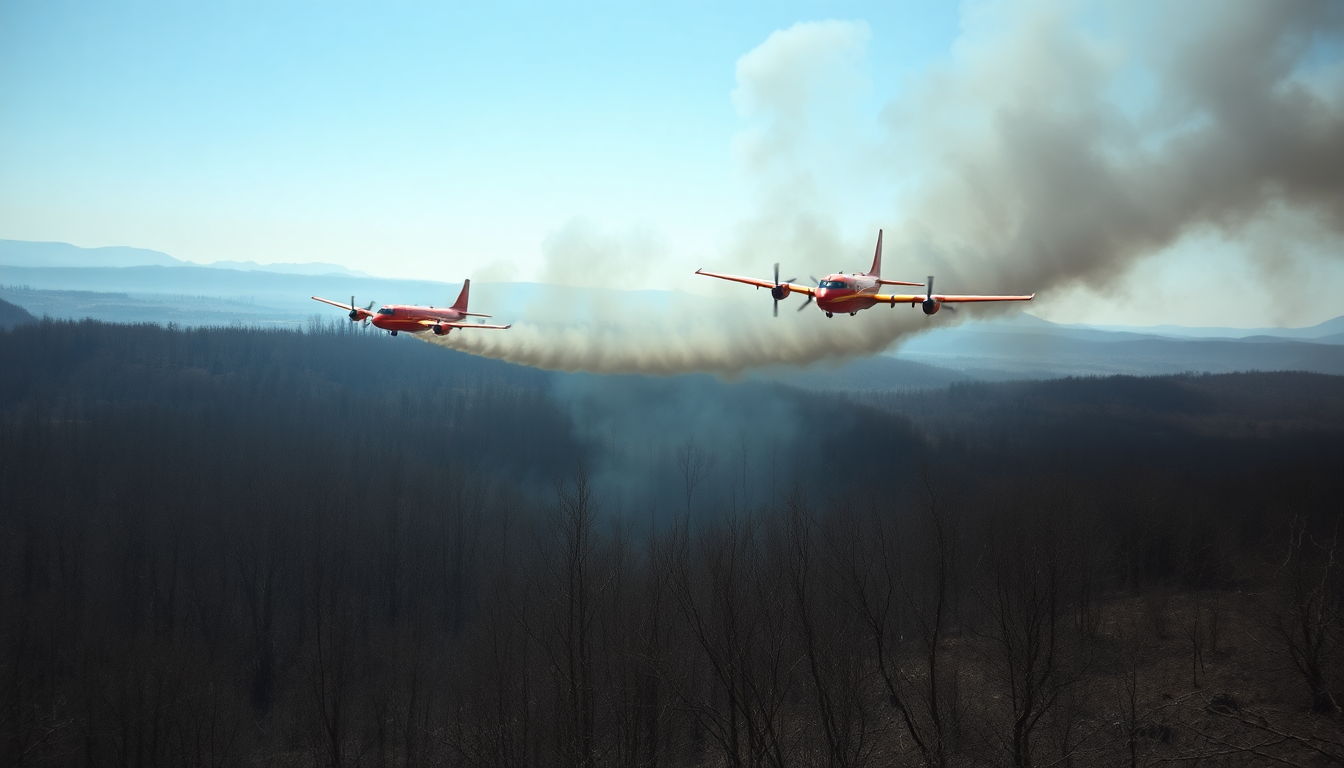Table of Contents
The wildfires that have been raging since late June have taken a devastating toll on both Turkey and its neighbor, Syria. As part of the response, Turkey has sent two firefighting aircraft to help combat the blazes across the border.
This decision comes at a time when Turkey itself is grappling with its own fires, which have led to tragic loss of life and significant evacuations. The situation is dire, highlighting the urgency of the wildfires that have been intensified by extreme weather conditions.
The Wildfire Crisis in Turkey
Since June 26, Turkey has been battling relentless wildfires. Forestry Minister Ibrahim Yumakli has reported some progress, with firefighters managing to contain ten major blazes throughout the country. However, the human cost has been heartbreaking, as the unfortunate death of an injured forestry worker marks the third fatality in the Odemis municipality of Izmir province.
It’s alarming that many of these fires have been linked to faulty power lines, shedding light on the vulnerabilities in our infrastructure during such crises.
In the Hatay province, which shares a border with Syria, emergency crews are locked in a fierce fight against a fire that broke out in the Dortyol district.
The flames have spread rapidly, fueled by strong winds, leading to the evacuation of around 920 homes to ensure residents’ safety. Governor Mustafa Musatli has urged everyone to exercise caution as the fire threatens residential areas.
Turkey’s Support for Syria: A Shared Challenge
As the wildfires continue to rage, Turkey’s assistance to Syria goes beyond just aircraft; it includes eleven fire trucks and water support vehicles designed to help mitigate the impact in the northwest Latakia region. Yet, logistical hurdles have delayed these efforts.
Syrian emergency management officials have pointed out that unexpected wildfires within Turkey have complicated timely support. This situation really highlights how interconnected the two nations are when facing such environmental crises.
Adding to the complexity, the Syrian Civil Defense has raised concerns about unexploded ordnance in some areas affected by the fires, remnants of past conflicts. This situation complicates firefighting efforts and poses additional risks to the safety of local populations. The region’s history of conflict makes emergency responses and recovery operations even more challenging, raising serious concerns about the long-term impacts on communities.
Climate Conditions and the Road Ahead
The recent wildfires in Turkey, Greece, and Syria have been significantly worsened by soaring temperatures, low humidity, and gusty winds—conditions that climate experts warn are likely to become more common due to climate change. While the summer months often bring wildfires to the eastern Mediterranean, the increasing frequency and intensity of these events underscore the urgent need for better preparedness and response strategies.
In Turkey alone, the wildfires have forced tens of thousands to evacuate and have severely damaged around 200 homes. Looking ahead, it’s crucial for authorities to focus not only on immediate firefighting efforts but also on developing long-term strategies for disaster management and climate resilience. As the region continues to confront these challenges, collaborative efforts and regional support will be key in addressing both the urgent firefighting needs and the broader environmental issues at play.





